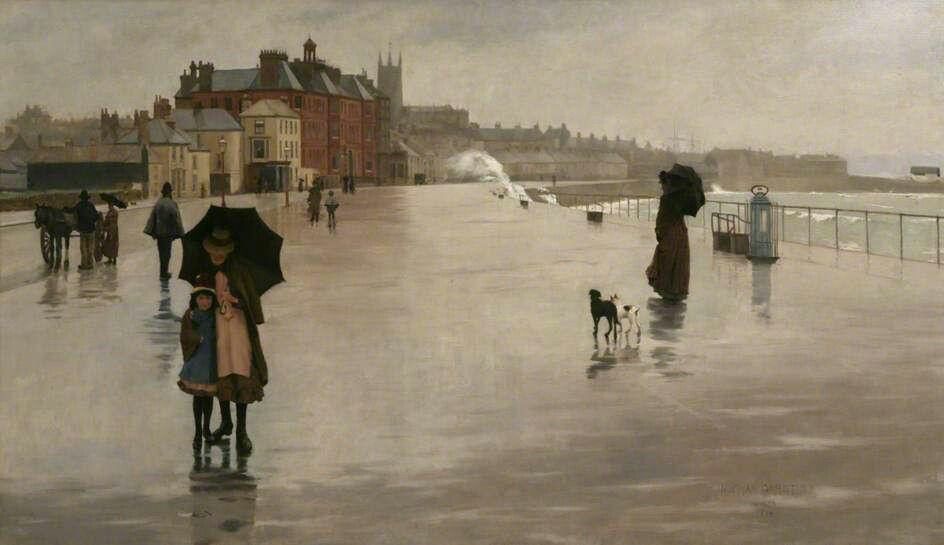.
Consequences of Following Advice
Advice can come in snappy lines
__That have a fun refrain:
“Let a smile be your umbrella,”
__Though that won’t block cold rain.
They tell us that “To err is human.
__To forgive is divine.”
But to forgive may let errors happen
__Yet another time.
They say recall, “When you’re in Rome,
__Do as the Romans do.”
But stay away from orgies,
__For they lost an empire too!
They say, “One must fight fire with fire.”
__Let bashes repay bashes.
The problem is that both men’s houses
__Could be burned to ashes.
They say, “Waste not, want not,”
__Save on everything you order.
The problem is that you become
__A freakish cluttered hoarder.
“Enjoy today, you don’t know if
__Tomorrow you may see.”
“Live like there’s no tomorrow,”
__And most likely there won’t be.
“Be yourself, and not like others”
__Is meant to be sublime,
But that may be the worst advice
__I’ve heard, and of all time.
There’s always more that we can’t see—
__A bigger story told
That can’t be summed up in one line
__And later will unfold.
.
.
LTC Roy E. Peterson, US Army Military Intelligence and Russian Foreign Area Officer (Retired) has published more than 6,200 poems in 88 of his 112 books. He has been an Army Attaché in Moscow, Commander of INF Portal Monitoring in Votkinsk, first US Foreign Commercial Officer in Vladivostok, Russia and Regional Manager in the Russian Far East for IBM. He holds a BA, Hardin-Simmons University (Political Science); MA, University of Arizona (Political Science); MA, University of Southern California (Int. Relations) and MBA University of Phoenix. He taught at the University of Arizona, Western New Mexico University, University of Maryland, Travel University and the University of Phoenix.















Clever “but the thing is” poem. On Pope’s “to forgive” line: no doubt that was on Peter’s mind when he asked Our Lord how many times we must forgive our neighbor.
Thank you for the “clever” comment. I recognize your Bible reference regarding a neighbor.
Some stout advice. I sometimes feel that my smile is etched on my mug.
Thank you, Paul, for the comment.
I just had a re-read. It’s amazing how many glib cliches we have for giving advice. ‘Live like there’s no tomorrow’ is my favourite, which is okay if you have no obligations or responsibilities to anyone.
LTC Peterson, you are a man after my own heart. One of the most annoying and pervasive pains of the current day is the endless flood of ADVICE, ADVICE, and ADVICE, the great bulk of it unasked for and unwelcome.
I wrote a short article some years ago on this very subject, at another website. In it I pointed out that most advice is maliciously intended, or surreptitiously critical, and that even well-intentioned advice was often useless or irrelevant to those who received it.
Your poem skewers the stupid platitudes of proverbial homespun advice that are constantly flung at us, and which are now being supplemented by a tsunami of urgent advice being published by advertisers, con-men, and self-appointed “influencers.”
We often are on the same wavelength, and I am thankful for the support regarding the sharing of advice. I am amazed at the platitudes, particularly on FB, that seem to lack logic, although I know the sender thinks the advice is either sound or clever. When I wrote the poem, these all came to mind almost instantly. There are so many more I could have used if I had concentrated or looked for them on the Internet.
I’m smiling at the cleverness of this advice-against-advice. I had actually never heard the one about a smile being an umbrella (how ridiculous!) All your other verses, as well, are very insightful, and true, and I can’t believe I’d never noticed quite how absurd these cliches actually are. “Be yourself” — knowing what human nature is like — certainly must be “the worst advice I’ve heard.” Great job, Roy!
Thank you so much, Cynthia, for your kind comments. There really are a lot of them out there meant to be encouraging, but in mind lacking in logic.
Sage advice, and so cleverly delivered. I thoroughly enjoyed the lilting rhythm of the poem that belied the sharp wit of the words.
I greatly appreciate your comments, Rohini! Thank you.
That’s a fun poem to read, thank you!
Thank you so much for your comment!
Roy, I agree that “Be yourself” is the worst advice. Essentially, it means, “Follow your whims.” The Socratic “Know yourself,” on the other hand, implies developing judgment based on understanding one’s good and bad tendencies. Your humorous analysis of one-liner advice concludes with the same sort of perspective: “There’s always more that we can’t see.” A Biblical proverb says likewise, “Plans fail for lack of counsel, but with many counsellors, they are well-founded.” Again, it implies that a good decision comes from exercising judgment about options, after taking care to learn what they are. Your poem is fun, but represents a bit of serious advice as well!
Margaret, there is always great wisdom in your comments. Perfect differentiation between being oneself and knowing oneself. That is followed by a great biblical proverb. Like some of my poems, I try to entertain, but at the same time there is the serious side which you considered. Thank you for sharing.
Fab poem Roy – love it! As I am in the management consulting and coaching business, it’s rife with gnomic memes parading as profundities (of course, some ‘wisdom’ is wise, but there is also a lot of tosh), and so your poem is a great antidote to thoughtless acceptance of truisms! Very well written indeed and FYI my favourite line is probably: “But stay away from orgies,” Right, man! I’m 72, will do my best.
“Good taste is timeless” is something we often hear, to which I rejoin, “Good times are tasteless.” You are onto something here.